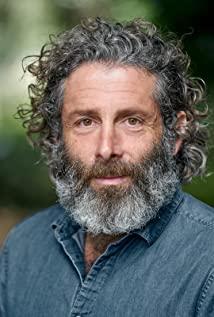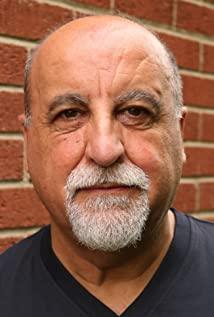Originally published in Beijing Youth Daily "Beijing Youth Art Review" on November 17, 2017.
"Grandma" Agatha Christie's novel "Murder on the Orient Express" was published in 1934, and the film and television dramas adapted from it include Sidney Lumet and Carl Schenker, filmed in 1974 and 2001 respectively. The movie of the same name, the British drama "Murder on the Orient Express" directed by Philip Martin in 2010, and the two-episode Japanese drama "Murder on the Orient Express" written and directed by Koki Mitani in 2015, etc. Comparing the original and previous film and television versions, the new version of "Murder on the Orient Express" directed by Kenneth Branagh changes the character settings to distinguish them, while magnifying the inspiration of the previous peers, but the effect is not brilliant.
The increasingly luxurious new Orient Express welcomes a group of star passengers such as Penelope Cruz, Willem Dafoe, Johnny Depp, etc. in Istanbul, the exotic intersection of Europe and Asia, who have changed their identities and changed again. skin color, but not teaming up to create a new and unique crime. Kenneth, who became famous by starring in Shakespeare's plays and turned into a director, has both directing and acting in both old and new industries. His interpretation of Poirot is outstanding in appearance and publicity, and even fights during the investigation process, but all the elegance of the Belgian detective is stripped away. At the beginning of the trial of the treasures of the church under the Wailing Wall in Jerusalem, the truth revealed that the composition of the picture at the end is like the "Last Supper", and the vertical overhead shots that can be seen everywhere, so that the film of the game between love and law is filled with "God's perspective", but it is a pity The British drama version has long used only a few sketches to make the "God"'s human glance thrilling.
Director's Ambition Hiding in New Passengers
The origin of the joint murder case on the Orient Express was that the wicked kidnapper Ratchett kidnapped the daughter of American Colonel Armstrong and tore up the ticket, causing the colonel's wife and the baby, colonel, and maid to die one after another, but Ratchett was acquitted. , and used the ransom as start-up capital, and changed his name to become a wealthy American businessman. In view of the fact that Colonel Armstrong and his wife were a pair of beautiful people and very popular, the daughter who inherited the genes of the two people was loved by everyone. The flight attendant's maid's father agrees to commit the perfect murder while Ratchett is in the car.
The tragedy that was born out of a real case was written into the book by the grandmother and turned into an iron-clad fact, which has become the criterion for many film and television adaptations, but the presentation methods are different. The 1974 film version, which has been regarded as "Pearl Jade", is quite praised by my grandmother. The opening uses slow motion or still frames of different tones with LOMO texture to fully explain the incident. The 2001 movie version set the background of the story in modern society, where the colonel became an Internet software tycoon, and a video on the Internet told the tragic death of him, his family and his maid. In the 2010 British drama version, the red tearing flashback shows the tragic events. In the Japanese drama version in 2010, the big social news of the Showa era was also fully interpreted, but after the detective revealed the truth of the murder. In this year's film version, the tragedy that shocked the United States is interspersed with the progress of the story in the form of black and white fragments, and uses a rare projector at the time to illustrate the prosperity of the Colonel's family.
Around the identities and occupations of the 12 citizens who were both jurors and law enforcement officers (actually 13 people, the Count and his wife worked together to commit the murder), except for Lumet's film version, which follows the original, other film and television versions have large or small changes. . The British version of Philip, the predecessor of Ratchett's secretary, went from an assistant who was obsessed with the Colonel's wife to the son of the prosecutor who broke Ratchett's case. The doctor also participated in the crime. In the Japanese drama version of Koki Mitani, a group of characters whose correspondences remain unchanged are all localized and age-based. Before they worked together, they were firm, hesitant, or withdrawn, and they were also endowed with Japanese-style human characteristics. In Karl's film version, numbers are no longer the norm, and the number of criminals committed together has been reduced to less than 10.
In Kenneth's latest film, a white colonel and a doctor of his own skin are two-in-one as a black physician; the noble earl and his wife become a burst of famous dancers and a somber partner following him; The young lover turned into an older brother who was not a few years older than her, an old man with whom he had a long-term relationship. The elder brother "inherited his father's business" and still worked as a flight attendant, but his lover's identity changed from a detective to a professor; the Spanish girl took over from the Swiss sister. Having played the role of a missionary... In addition to nationality, identity, occupation, and temperament, the most important thing is that Kenneth adjusted the skin color of the 13 passengers to a certain extent, showing political correctness and implying cultural diversity. The train of the era of globalization. However, Kenneth's commercial ambition to please the global audience with the help of the best-selling classic of "The Queen of Reasoning" is also obvious.
The arrogant detective steps down from the altar of calm
It is a pity that because the main opponent Poirot is too bright and always stands in the main control position in a high-profile manner, many acting groups have lost their color in the confrontation with him, and many of the originally interesting group scenes, such as the final outdoor "The Trial" has all been reduced to Poirot's supporting roles-perhaps to blame Kenneth, who has played many "Henry V", for refusing to take off his crown in the scene where he has the right to speak.
Poirot was described by Grandma as a dwarf with a civilized stick and a unique beard. He was ridiculed by many unfamiliar faces who judged people by their appearance, but he never took it seriously. In the previous film and television versions, no matter which country or era Poirot was in, or whether he was an interesting chatter or a wise man who didn't want to talk more, this basic image has never changed. In the 1974 film version, he especially emphasized his cherishing of the moustache, which was raised symmetrically on the left and right sides, and did not forget to use tools to fix it before going to bed. In the new version of "Murder on the Orient Express", although Poirot also cherishes the beard as his life, others will no longer look at his figure coldly. He is not only tall and quick-thinking, but also quite skilled. In order to win, participate in the chase and fight scenes.
With Poirot's appearance "disguised", his spiritual temperament also undergoes a dramatic subversion. In order to reflect Poirot's inner justice scale in detail, the 2010 British drama version has a chic breakfast scene in which Poirot asks the flight attendant to help him prepare two identical hard-boiled eggs and uses his fingers to check whether they are qualified. In the new version of the film, there is also a scene where Poirot asks for two eggs to be the same size, and then there is a scene where he accidentally steps on horse dung with the other foot, but compared to Philip's restrained brushstrokes, Ken Neith's continuous pictures are really not clever and interesting, and the obsessive-compulsive disorder of the great detective is tinged with arrogance.
This kind of wildness continued to the subsequent train investigation. The detective's reasoning and suspicion turned into some childish speculation and identification - although the audience looked at it, they would admit that he and Booker, the owner of the Orient Express who assisted in solving the case. Comparable to the "golden partner", the latter also has a new look, written from head to toe with frivolity and exaggeration.
'God's View' just looks beautiful
In the original book, the missionary who was originally a nanny for the colonel's daughter did not pay much attention to it, but he was connected to "God" because of his occupation. If it is said that there are no more or no less than 12 jurors, as the Japanese drama version said, they represent "God's will" and "guide" them to stab Ratchett 12 times in their revenge. The legitimacy of this kind of behavior poses a weak question - assuming that the guilt committed by a murderer is unbearable, the sky has no eyes, and the victim's kind and sad relatives and friends have the right to punish the criminals on their own?
The answer given by Grandma is of course yes. Among the 12 knives, there is a knife stabbed by the missionary tremblingly. Poirot, who has finished the "closing statement", also temporarily put aside his obsession with justice and justice, letting favor prevail. However, the thoughtful Mitani Koki asked in his episode, if the criminal also has a family, wouldn't it create new grief? Fortunately, the offender is alone and shows no signs of rehabilitating, and everything went according to plan.
Probably because of the importance of the role of the missionary, Ingrid Bergman, who played the role in the film version of Lumet, won the Best Supporting Actress award at the 47th Academy Awards. However, in the new version of the movie, Penelope Cruz's role has become a dispensable embellishment. She collided with the locals when she was in the car, and the boldness of the Spanish girl was displayed, but she also refused to meet God has a relationship.
But as mentioned earlier, the new version of "Murder on the Orient Express" does not lack "the eyes of God", but considering that Philip has made God invisible or appear in a way that makes the audience tremble in the British drama version, it is difficult to say this. Become the carrier of Kenneth's thought. At the beginning of the British drama version, Poirot, who had just been questioned by the French soldiers for his fairness and rationality, saw with his own eyes in the Holy City the reality version of people throwing stones at the adulterer mentioned in the "Bible" staged, but he could only do it in a powerless manner. Bystanders, God is absent at this moment, law and sentiment are all invalid. On the Orient Express, he prayed to God with Ratchett, who lived next door, and pointed out that "all beings are equal." And until the final contrast means that "feeling is better than law", Poirot's mood changes, there are rules to follow along the way.
In contrast to the new version, because Poirot hurried forward from beginning to end lacks the moment of meditative thinking, the "God's perspective" throughout has no substantial function, but is just a beautiful decoration. Therefore, his rant about the "13 Righteous" and the so-called dilemma of "human nature and the law" when he revealed the mystery also seemed unconvincing and only a joke.
View more about Murder on the Orient Express reviews











